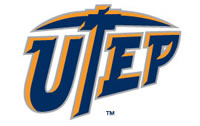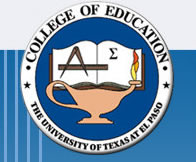
Bill Robertson, Ph.D. - Classes
Teacher Education Department
TED 5314 - Concept-Based Science Education
Links
Genetic Science Learning Center
The Genetic Science Learning Center is an outreach education program located in the midst of bioscience research at the University of Utah. Our mission is to help people understand how genetics affects their lives and society.
Seminars on Science
Seminars on Science is a series of professional development courses designed and implemented by the American Natural History Museum in New York City. The six week units feature world-class scientists and cutting-edge research, all at your fingertips. In each of our award winning courses you will discuss scientific ideas and classroom applications with Museum scientists and educators.
Critical Thinking Curriculum Model
The Critical Thinking Curriculum Model (CTCM) is a multidisciplinary approach designed to encompass computer technology, a current real world issue, and effective learning and teaching practices. As a project-based curriculum, it encompasses the political, social/cultural, economic, and scientific realms in the context of a global issue. In this way, students realize the importance of their schooling by applying their efforts to an endeavor that ultimately will affect their future.
Critical Issues Forum
The Critical Issues Forum (CIF) was established to give students and teachers the opportunity to address issues and circumstances involved in safeguarding nuclear weapons. The project was developed by Richard Alexander (LANL Education Program Office) and Dr. William Robertson (University of Texas at El Paso - UTEP) for the Department of Energy - Office of Defense Programs. As we first began to develop the CIF program, we made a conscious decision to develop a curriculum model that encompassed our educational philosophies and experiences as they pertained to successful teaching and learning practices.
Air Quality Curriculum Project (AQCP)
Air Quality Curriculum Project (AQCP) is an educational program implemented by the Environmental Educational Outreach Program (EEOP) at Northern Arizona University (NAU).
Thematic Units at Whitehorse Elementary
Problem-based learning thematic units for the elementary level on a wide range of topics.
Nicenet
Nicenet's Internet Classroom Assistant (ICA) allows virtually any classroom, even those with modest resources, access to powerful tools. Everything in Nicenet is offered free for public use, and Nicenet makes no profits from your participation.
George Lucas Foundation
The George Lucas Educational Foundation (GLEF) is a nonprofit operating foundation that documents and disseminates models of the most innovative practices in our nation's K-12 schools.
Learner-Centered Classrooms
Resources on Learner-Centered Classrooms, Problem-Based Learning, and the Construction of Understanding and Meaning by Students
Designing PBL with the Internet
Information on PBL construciton
What is Problem Based Learning?
Problem-based learning (PBL) is exactly what its name implies--learning through given problems and situations. This type of learning is used in both K-12 and in universities.
Problem Based Learning vs. Project Based Learning
The terms project-based learning and problem-based learning are each used to describe a range of instructional strategies. The breadth of their respective definitions, their conceptual similarity, and the use of the shorthand term PBL result in some confusion in the literature.
Problem Based Learning - Internet Classrooms
In Problem Based Learning (PBL) environments, students act as professionals and confront problems as they occur - with fuzzy edges, insufficient information, and a need to determine the best solution possible by a given date
Inspiration/Kidspiration Resources
Primary focus is on Inspiration/Kidspiration resources. There is enough information to satisfy most tech ed junkies for at least a day or two.
Texas Essential Knowledge and Skills (TEKS)
As stipulated in the Texas Education Code, school districts are required to provide instruction in essential knowledge and skills at the appropriate grade levels. Here you can find guidelines for instruction.
UTEP TQE Middle School Science Grant Grades 4-5 Science TEKS Planner Page
This web page collects some initial 4th grade through 5th grade science TEKS for the use of participants in UTEP's TQE Middle School Science program. It has been developed by and is maintained by Dr. Brian Giza, Assistant Professor, UTEP College of Education.
UTEP TQE Middle School Science Grant 6-8 Science TEKS Planner Page
This web page collects some initial sixth grade through eighth grade science and health TEKS for the use of participants in UTEP's TQE Middle School Science program. It has been developed by and is maintained by Dr. Brian Giza, Assistant Professor, UTEP College of Education.
UTEP Middle School Science Teacher Quality Enhancement Force Systems
Force and Motion studies are an important part of middle school science. This page supports a group of activites that may be explored through the use of some simple and low-cost apparati. Every "force system" lab activity can be put together for under $20. A list of items, their cost, and locations where they may be easily found is included along with the activity.
UTEP Middle School Science Standards and Activities Matrix
The (still developing) alignment matrix for activities (June, 2005)
Disposable Camera Microscopes
When students design and build their own versions of instruments, they appreciate them more - and are more likely to want to use the real thing properly. This page supports a group of activites that may be explored through the use of some low-cost, home-made microscopes (simple or single-lens microscopes, altough there are ways to extend this kind of activity to compound microscopes). Each lab activity can be put together for under $5.
Project Foundry
Building on the strengths of student-centered project-based learning, Project Foundry was developed to engage students and dramatically reduce the amount the paperwork traditionally associated with this highly effective learning model.
Syllabus | Schedule | Research Assignments| Discussions | Student PBL Products| Evaluation | Resources | Links

Bill Robertson, Ph.D. (robertson@utep.edu)
Teacher Education Department, College of Education, University of Texas at El Paso